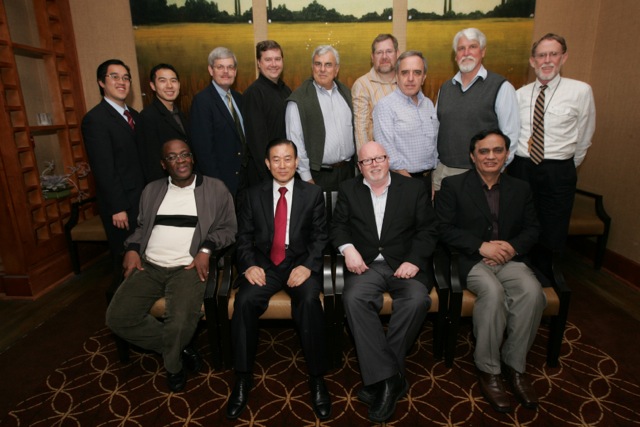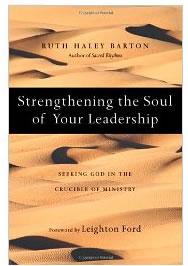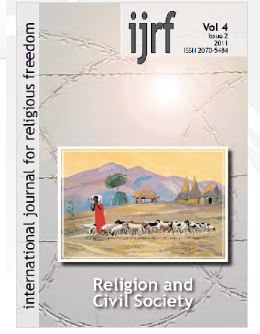
April 2012
A Functional Description of an Evangelical Alliance

If your Evangelical Alliance was given a “job description” what would it look like? Some time ago, a group of experienced and professional leaders gathered to lay a foundation for the curriculum of the WEA Leadership Institute. Shut into a large boardroom hosted by a Global Partner of the WEA this group was tasked with developing a list of outcomes or competencies that would steer the course development for our training programs. Around the table, and spilling into corners of the room, energetic participants represented the World Evangelical Alliance main office, Regional General Secretaries from five regions, and recognized experts in association management, donor relations, partnership development, public engagement and curriculum development. Instead of merely, green lighting (brain storming) a list of desired outcomes, this capable crew began by describing the job of an effective Evangelical Alliance.
To this day, this functional description and the outcome profile that followed, serve to guide the training programs of the Leadership Institute. The purpose of this edition of the WEA-LI Imagine is to present the content of this work and document to the public and make it available especially to new Evangelical Alliance leaders who may be asking some basic questions like: What is the purpose of an Evangelical Alliance? What does an effective Evangelical Alliance do? How does an Evangelical Alliance get on with its mission?
Unites
A national Evangelical Alliance provides a platform that gathers Evangelicals from the broadest Christian spectrum, around God’s Great Commission and Great Commandment. It is inclusive by nature but qualifies its membership through its statement of faith and expectations of and adherence to a Biblical standard of living.
Represents
A national Evangelical Alliance encourages united action from its constituencies and speaks on their behalf. It understands its publics and represents Evangelical thinking to these. It speaks collectively to secular society and governments. It engages in intrafaith and interfaith dialogue over issues of common concern. It also speaks for the voiceless and promotes peace and justice within its context. It does so with a style that is respectful yet clear and uncompromising in matters of faith and conscience. It is adept in the use of media and other public means to communicate its message.
Serves
A national Evangelical Alliance researches the needs of its constituencies and finds ways to meet them. It provides members with services and products that build, equip, and generate greater capacity. It establishes high, consensually derived standards and makes training available that enables constituencies to meet these standards.
Leads
National Evangelical Alliances utilize core management principles and practices that cater to their unique organizational nature and purpose. Healthy boards provide oversight, approve key outputs, help provide financial stability, and hold the executive accountable for the operation of the organization. Alliance leaders regularly participate in training opportunities to develop and grow their leadership, management, and governance skills.
Funds
A national Evangelical Alliance operates on a sustainable, theologically sound funding model. It courageously and creatively generates funds by exploiting the spectrum of potential funding streams. It tells its story passionately and compellingly. Funding proposals are well written and supported with clear outcomes. It respects and honors its donors and gives them cause to trust them. It understands its donor segments and manages those relationships effectively. It conducts itself with integrity, demonstrating fiduciary responsibility. It is creative in problem solving and operates in the spirit of generosity.
Partners
A National Evangelical Alliance promotes a culture of collaboration among its constituencies that lead to project initiatives. It identifies stakeholders and provides a platform to convene them around potential areas of collaboration. It facilitates process steps towards partnership formation and provides ongoing support. It emphasizes healthy relationships between partners and is willing to mediate conflict. It operates in the spirit of a Kingdom mindset, emphasizing Kingdom goals and a spirit of generosity.
Conclusion
The reader will notice that the first three in this list are the core activities of Evangelical Alliances. Many Alliances express these in their own words. For example, the World Evangelical Alliance uses the words Connect, Equip and Represent. The European Evangelical Alliance describes its function as: a meeting place, a platform for common action, and a voice for Europe's Evangelicals. The New Zealand Christian Network describes its function by saying it seeks to Gather Christians to share topics of interest & concern, Build networks to bring Christians together, Speak with and listen to the Church and the wider community throughout New Zealand.
The second three are methodological and describe how to go about fulfilling the functional tasks. These six descriptive areas are also well developed in some of the work produced by the European Evangelical Alliance (Towards A Healthy Evangelical Alliance) and the Evangelical Association of the Caribbean (Towards a Viable, Visible, and Vital National Alliance/Association) but here serve as summary of the basic task of Evangelical Alliances.
When a new leader of an Evangelical Alliance sits down behind the CEO’s desk for the first time, or goes to “work” on the first day, he or she may prayerfully ask, “Where do I begin?” But the more important question is, “What are we supposed to do?” Simply put, his or her new job is to get the Evangelical Alliance to express the unity of the Church of Jesus Christ, represent Evangelicals as a trusted voice before their nation, and to serve its member organizations and churches as they fulfill their God given mandates, thus impacting the nation with the Kingdom of God. An effective EA will fulfill these tasks by leading well, developing needed funding and promoting cooperative efforts and strategic partnerships.
New Resources
The Leadership Institute serves our Evangelical Alliance and supporting members by providing electronic resources. You can find these resources at: WEAresources.org , or by clicking on the Resources link at worldea.org. Here are some new additions for you to enjoy.
Islam - An Introduction, by Christine Schirrmacher
In the age of globalization, people of different nations, cultures and religions are living closer together than ever before. Muslims in the West are a substantial minority claiming equal political rights. In other parts of the world, Islam has got foothold by establishing student organizations, granting scholarships or building large mosques alerting a wider public to our multireligious reality. Christine Schirrmacher’s short introduction presents a well-written outline of the basic teachings of Islam, its sources, its culture and political aims.
http://www.worldevangelicals.org/resources/view.htm?id=343&q=islam&page=2&s
Racism, by Thomas Schirrmacher and Richard Howell
Are “white” people more intelligent than “black” people? Are Jews devious and grabby? Intolerance and violence through racism includes slavery, national socialism in Germany, apartheid in South Africa, or the genocides in Rwanda and Bosnia. But racism is not only wrong theologically, it is not only against the dignity of humans, that guarantees their human rights, but newer genetic research also proves that the whole classification into races is without foundation. Biologically speaking all humans belong to one race. E.g., when you need a blood transfusion, you should not look for a blood donor from your “race”,
but someone with the same blood group transcending all “races”.
http://www.worldevangelicals.org/resources/view.htm?id=342&q=racism&page=1&s=
International Journal for Religious Freedom 2011, Volume 4, Issue 2 - Religion and Civil Society
IJRF is the journal of the International Institute for Religious Freedom (IIRF). It is published bi-annually and aims to provide a platform for scholarly discourse on the issue of religious freedom in general and the persecution of Christians in particular.
http://www.worldevangelicals.org/resources/view.htm?id=341&q=2011&page=1&s
Feature Book Review: Strengthening the Soul of Your Leadership

Our quest to provide practical resources for Alliance leaders compelled us to add a new and regular feature of future Imagine editions: a featured book review. This book review comes from John Pearson. You will find the links at the end of this article where you can subscribe to receive weekly book reviews. This review was reprinted by permission and can be found at John Pearson’s The Buckets Blog.
Strengthening the Soul of Your Leadership: Seeking God in the Crucible of Ministry, by Ruth Haley Barton. Published by Intervarsity Press in 2008 (220 pages).
Soul Whackers

The sidebars and the prayers in this book are soul whackers. Like Henri Nouwen’s elbow-to-the-gut: “The great illusion of leadership is to think that man can be led out of the desert by someone who has never been there.”
Sometimes you’re fortunate enough to chew through a book with soul-probing insights and illuminating “Ah ha!” moments. Then there are times when the content is not so soul-shattering, but the writing is poetic and almost symphonic. Amazingly, this 221-page gem is both. It whacked my soul. It raised my sights. I appreciate my God and Savior more today than I did last week.
Bill Hybels often preaches, “Speed of the leader, speed of the team.” Perhaps you’ve had those times like this week’s author, Ruth Haley Barton, who sighed, “I’m tired of helping others enjoy God; I just want to enjoy God for myself.” If your leadership life needs not just a boost, but a divine encounter with our Holy God, read this book. Slowly.
Then, rather than offering the cold stone of past devotionals, regurgitated apologetics or someone else’s musings about the spiritual life, we will have bread to offer from the oven of our intimacy with God
“Strengthening the soul of your leadership is an invitation to enter more deeply into the process of spiritual transformation and to choose to lead from that place,” writes Barton. “It is an opportunity to forge a connection between our souls and our leadership rather than experiencing them as separate arenas of our lives.”
She rightly observes, “The market is glutted with books on leadership, and many contain contradictory messages.” She takes leaders down a very slow path of spiritual leadership—focusing on sustenance for their own souls. “Then, rather than offering the cold stone of past devotionals, regurgitated apologetics or someone else’s musings about the spiritual life [or might I add the latest email devotional], we will have bread to offer from the oven of our intimacy with God.”
Using the story of Moses—with fresh insights—Barton concludes each chapter with a “Practice” suggestion and serves up often remarkable prayers from saints past and present.
While I read every book I review, I typically read fast and slow down only to underline good stuff. Trust me—you can’t read this rapidly. A chapter-a-day was about my limit. The soul whacks are unnerving, refreshing, penetrating and deep. For me, it would have been sinful to rush through this treasure. Don Parrott, president of The Finishers Project, encouraged me to read this book (it was on my “Read Soon” shelf), yet with a warning. “After you read it, you’ll need to get away for some solitude to deal with it.” I agree.
Leighton Ford’s foreword pulls you into the richness of the topics like “When Leaders Lose Their Souls,” “The Practice of Paying Attention,” “Guiding Others on the Spiritual Journey,” “Living Within Limits,” “Spiritual Rhythms in the Life of the Leader,” and thoughts on the loneliness of leadership, isolation and finding God’s will together. It’s real stuff—because Barton is a nonprofit ministry leader herself. She gets it. You, or someone close to you, will cherish this book.
To order this book from Amazon, click on this title:
Strengthening the Soul of Your Leadership: Seeking God in the Crucible of Ministry , by Ruth Haley Barton.
Book Review used with permission by John Pearson (December 22, 2009).
Link to the article:
http://urgentink.typepad.com/my_weblog/2009/12/index.html
Link to John Pearson’s blog:
http://urgentink.typepad.com/my_weblog/
Link to John Pearson’s website:
http://www.managementbuckets.com
Let's be friends
If you haven't noticed, the WEA Leadership Institute is on Facebook. Please join us and like us!
Links
- About the WEA Leadership Institute
- About the Certificate in Association Leadership
- Download the WEA-LI Prospectus
- Apply Online

Missed out on one of our WEA-LI Imagine! Newsletters? View our online archive
|
74 Trinity Place Suite 1400, New York, NY 10006-2122 Telephone: +1 646 658 3143 E-mail: weali@worldea.org Facebook: www.facebook.com/worldea.li Twitter: www.twitter.com/wea_li More than we can imagine! - Eph. 3:20 |
 |


